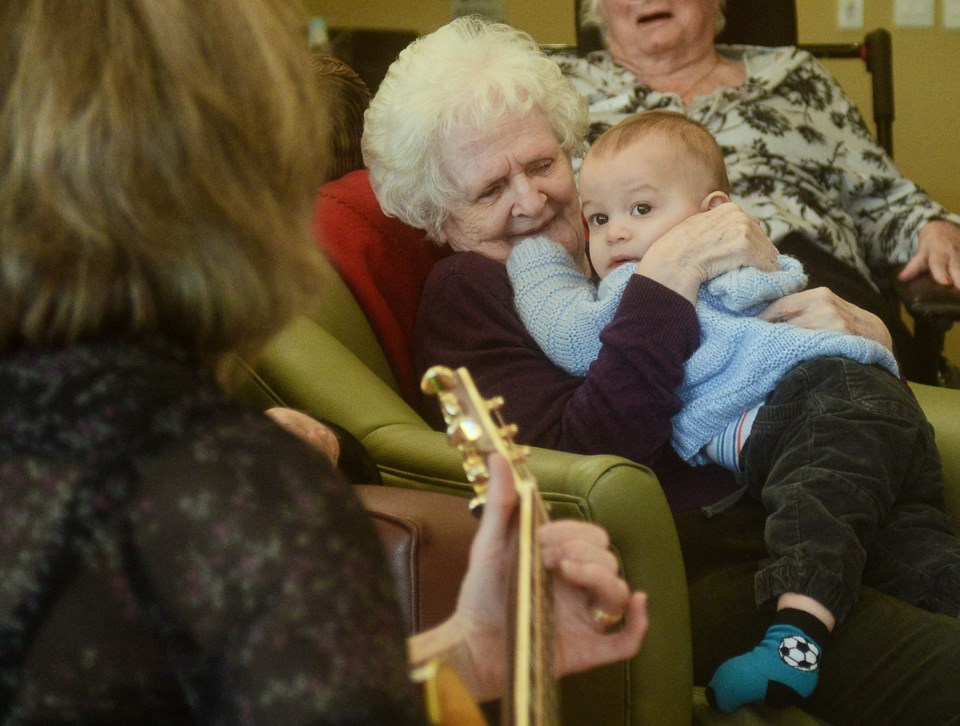A music therapy program that brings together toddlers and seniors living in a long-term care home shows surprising benefits even to people outside the program, says a researcher who has been following it.
The Intergenerational Music Program, or Jamboree, brings together residents of The Village of Riverside Glen’s long-term care facility on Woodlawn Road with children under the age of four.
The 12-week program was already in existence at Riverside Glen before Kate Dupuis, Schlegel Innovation Leader in Arts and Aging for the RIA at Sheridan College, began to follow it for her research.
“Music is a catalyst. It is a touchstone and something children are exposed to, even in utero,” Dupuis said Thursday. “Music is also something that individuals living with dementia, who have difficulty with their language, can still hum along to, sing or even just move their bodies to.”
For the residents, the benefits are both physical and emotional. Dupuis said the toddlers refer to them as their ‘grand-friends.’
“They are smiling, they are laughing, they are touching the children and having them sit up on their laps,” said Dupuis. “They are engaging in music making and communicating in ways they perhaps wouldn’t have otherwise been doing outside the music therapy session.”
“We have one resident who isn’t very verbal, but during sessions she will sing nursery rhymes with the children,” she added.
For the children, Dupuis found it takes a bit of time before they buy into the program.
“It’s a new environment with new people, new sights and sounds,” said Dupuis. “It takes them a few weeks to come out of their shells, but over the course of the 12 weeks of the music therapy we find that they are developing very strong connections with our residents.”
Dupuis said music is the catalyst that makes those connections between the two age groups possible.
“It’s called the universal language for a reason. It’s such a powerful tool to use to break down barriers between people and help them really form those strong connections,” she said.
Dupuis said the benefits don’t stop at just the residents and toddlers. It also extends to the parents and grandparents who bring their children to the sessions every week, as well as to the team members who work at Riverside Glen.
Even team members who aren’t directly involved in the program see benefits, said Dupuis.
“They stop and watch or talk to other team members about the program. They also have something to talk to the residents about,” said Dupuis.
The intergenerational relationships that are built between child, parent and grandparent or grand-friend are priceless, said Bryce McBain, general manager of Riverside Glen.
“More residents that were more inclined to keep to themselves are coming out of their rooms to see the parents and children when they visit and as result make more connections in our village that help to create a more meaningful and joyful life for all," he said.
The program is run by music therapist Kathy Lepp, who not only plays music the children will enjoy, but also older pieces of music that the residents would appreciate.
Dupuis said that helps the residents to be more engaged and has benefits for the children, as well.
“It’s neat because it exposes children to different tempos, different rhythm and language they wouldn’t necessarily have in their own songs,” she said.
